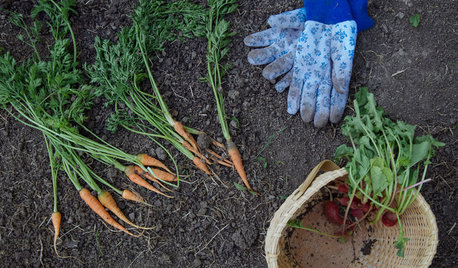Small Farm selling 'organic'
omgd
16 years ago
Related Stories

MOVINGThe All-in-One-Place Guide to Selling Your Home and Moving
Stay organized with this advice on what to do when you change homes
Full Story
SELLING YOUR HOUSE10 Low-Cost Tweaks to Help Your Home Sell
Put these inexpensive but invaluable fixes on your to-do list before you put your home on the market
Full Story
ORGANIZINGSmall Steps to Organizing Success
Take care of bite-size projects, and your home's big picture will be an organized dream before you know it
Full Story
FARM YOUR YARDMy Houzz: Backyard Farming for a Kansas City Family
A backyard garden provides a family of 5 with organic seasonal produce. Here's how they do it
Full Story
SELLING YOUR HOUSEA Moving Diary: Lessons From Selling My Home
After 79 days of home cleaning, staging and — at last — selling, a mom comes away with a top must-do for her next abode
Full Story
SELLING YOUR HOUSESell Your Home Fast: 21 Staging Tips
Successful staging is key to selling your home quickly and at the best price. From cleaning to styling, these tips can help
Full Story
SELLING YOUR HOUSEHelp for Selling Your Home Faster — and Maybe for More
Prep your home properly before you put it on the market. Learn what tasks are worth the money and the best pros for the jobs
Full Story
SELLING YOUR HOUSEHome Staging to Sell: The Latest Techniques That Really Work
Get up to speed on the best ways to appeal to potential buyers through accessories, furniture, colors and more
Full Story
SELLING YOUR HOUSE10 Tricks to Help Your Bathroom Sell Your House
As with the kitchen, the bathroom is always a high priority for home buyers. Here’s how to showcase your bathroom so it looks its best
Full Story
DECORATING GUIDESStage Your Home and Sell it Fast
11 ways to prep your house for more offers and a quicker sale
Full Story





toughboy
kydaylilylady
Related Professionals
Accokeek Landscape Architects & Landscape Designers · New Mexico Landscape Architects & Landscape Designers · Southfield Landscape Architects & Landscape Designers · East Patchogue Landscape Architects & Landscape Designers · McKinney Landscape Contractors · Allentown Landscape Contractors · Goodlettsville Landscape Contractors · Kailua Landscape Contractors · Kettering Landscape Contractors · Las Vegas Landscape Contractors · Rochester Landscape Contractors · Thonotosassa Landscape Contractors · Chicago Ridge Landscape Contractors · Eastvale Solar Energy Systems · Hemet Solar Energy Systemsrobin_maine
carinb
toughboy
boulderbelt
bucks